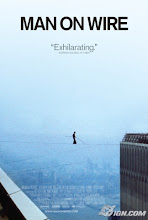Unlike films which make a mockery of their homosexual characters, Sherman Alexie's The Business of Fancydancing develops the experience of the dynamic character Seymour Polatkin in a way that respects homosexuality. Seymour is an openly gay Native American poet. He is portrayed as a real, substantial person, contrasting the shallow stereotypes that Hollywood has made so recognizable. Seymour is successful in his career and proud of his sexuality without letting it be the sole defining feature of his personality.
The reading from this week, "Gay and Lesbian Criticism" by Anneke Smelik discusses how stereotypes of gay men and lesbians in films established norms. Through degradation of homosexual characters, films established heterosexuality as a socially acceptable standard. This contributed to audience's formation of world view. For straight viewers, cinema reinforced that being gay was not normal. Cinema also had the effect of instilling self-hatred in gay viewers. The movie The Business of Fancydancing breaks out of this behavior. Seymour is clearly content with being gay and for him it is normal.
Seymour is no stereotype. He is unique. It was uncommon for an Indian on his reservation to become a poet. His behavior does not fit in with what is perceived as stereotypical. He is a deep character whom audiences can relate to. The level of development seen in his character shows a significant divergence from characters such as the costume designers in The Broadway Melody. In this 1929 film the effeminate male costume designers were a source of comedic relief. Though their sexual orientation was not explicitly stated, it was implied. This put the idea into audiences’ minds that being gay is something to be mocked and not respected. Cinema has a way of telling people what to think about society, and themselves.
Seymour from The Business of Fancydancing
 Character from The Broadway Melody
Character from The Broadway Melody
The character of Seymour came across as a realistic character to me because even he struggled with accepting the way his life was. Even though he was secure in his sexuality, in a conversation with a friend he admits that he has frequently wondered what his life would be like if he was straight. He is happy with the condition of his life but like most people in reality, still has questions and personal struggles. He is in the process of being accepted by his tribe who feel that he abandoned them by leaving the reservation and not returning for such a long time. He used poetry to grapple with his own thoughts and feelings. The Business of Fancydancing did a good job of representing a gay character in a realistic, respectful manner.
Audrey Chasteen













No comments:
Post a Comment